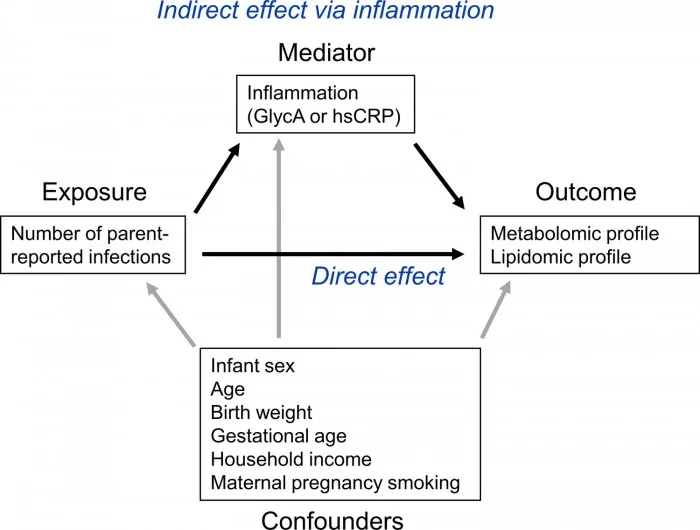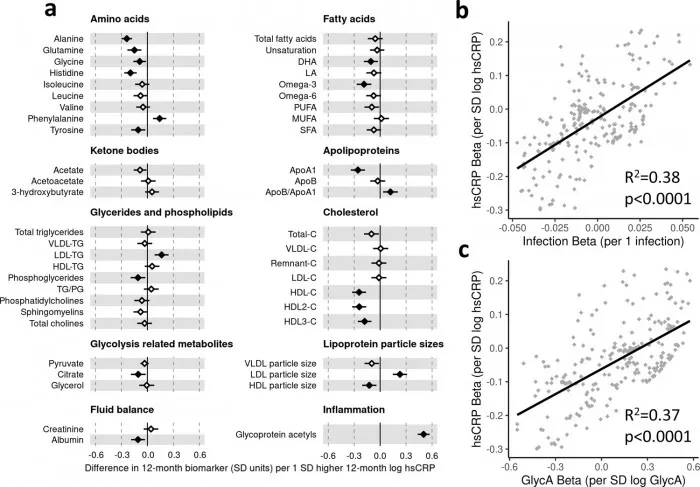The immune system of newborns is weak. As a result, they are more vulnerable to certain diseases than older children and adults. Their new immune system has not yet developed enough to fight the bacteria, viruses and parasites that cause these infections. Bacteria and viruses together make up most of the infection experience of newborns. Newborns may acquire infection before, at and after birth.
Shortly after birth, the infant's immune system begins to mature, rapidly reducing the number of infections in the child. Nevertheless, a short period of vulnerability may have a serious impact on the child's future health.
Researchers have found a potential link between childhood infection and future cardiovascular disease risk, opening the door to targeted interventions. This study was led by the Murdoch children's Institute (MCRI) and published on eLife on May 10, 2022. The researchers found that the increase of inflammatory markers and the changes of metabolism (the way in which body cells process food nutrients into energy) in susceptible infants were similar to those seen in adults at risk of cardiovascular disease.
According to Dr Toby Mansell of the Murdoch children's Institute, these results mean that cumulative childhood infections may make adults more vulnerable to heart disease, obesity, stroke and type 2 diabetes.

"We found that the risk of cardiovascular disease in adults may accumulate from early life. We know that infants are vulnerable to infection. This leads to inflammation, which is a key risk factor for cardiac metabolism. However, before this study, the relationship between infection, inflammation and early childhood metabolism was still not fully explored," he said.
The study involved 555 infants in the Pakistan infant study. It was a cooperative project of the Pakistan Health Bureau, Murdoch children's Hospital and Deakin University. The infant infection was tracked for 12 months.
The study found that by 12 months of age, the high infection rate of infants was related to the increase of inflammatory markers and the change of metabolic profile, which affected how the body processed fat, protein and carbohydrate.

Professor David burgner of mordock children's Hospital said that infection has been considered as a potential cause of cardiovascular disease, which is one of the major causes of adult death worldwide. In Australia, cardiovascular disease accounts for a quarter of all deaths, and one person is killed every 10 minutes. More than 4million Australians suffer from cardiovascular disease, which causes hospitalization every minute.
Professor Bergner said that this study provides an opportunity for early prevention measures, such as identifying the types of infection and children at the highest risk, and how to offset these risks through simple interventions. "Targeted actions can include promoting breastfeeding, ensuring timely vaccination, and supporting families so that they can keep their children at home when they are sick from infection," he said
Researchers from the Royal Children's Hospital, the University of Melbourne, the baker heart and Diabetes Institute, the Flory Institute for neuroscience and mental health, Deakin University, the University of radburg medical center in the Netherlands, the University of Queensland, the Pakistan Health Bureau and Monash University also contributed to this study.